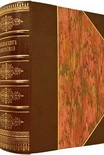The Twelve Lives of Alfred Hitchcock by Edward White (an ebook reader txt) 📗

- Author: Edward White
Book online «The Twelve Lives of Alfred Hitchcock by Edward White (an ebook reader txt) 📗». Author Edward White
The auteur theory was exceptionally influential in shaping the way Hitchcock was perceived through the sixties and seventies, solidifying his reputation as a film artist. In 1963, the Museum of Modern Art held a Hitchcock retrospective, followed by the first English-language books about his work. The new appreciation seemed to affect Hitchcock’s filmmaking, too. In November 1964, he reached out to Vladimir Nabokov, as deified for his prose style as Hitchcock was for his cinematic technique. Hitchcock floated two embryonic ideas. The first was about the wife of a Cold War defector, along the lines of what would become his next movie, Torn Curtain. As he explained to Nabokov, “the type of story I’m looking for is an emotional, psychological one, expressed in terms of action and movement and, naturally, one that would give me the opportunity to indulge in the customary Hitchcock suspense.” The second idea was one he had played with for a long while and attempted with other writers: a story about a teenage girl who realizes that the hotel run by her family is a front for an organized-crime operation. “As I indicated to you on the telephone, screenplay writers are not the type of people to take such ideas as these and develop them into responsible story material. They are usually people who adapt other people’s work. That is why I am by-passing them and coming direct to you—a story-teller.” Intrigued by the second idea, Nabokov replied that he was sure he’d be able to rustle up a fine screenplay—though, naturally, he’d require absolute freedom to take the story where he pleased. That was a warning of jagged rocks ahead. Demands on both men’s time meant the collaboration never happened, but if it had, one wonders whether it would have stood a chance of avoiding the acrimony that befell the Steinbeck and Chandler projects.
Evan Hunter thought The Birds was the moment when Hitchcock tipped his hat to the highbrow critics and attempted to make an “art” film. When Hunter read Hitchcock explaining to journalists that the birds “symbolized the more serious aspects of life,” he was incredulous. “This was utter rot, a supreme showman’s con. . . . While we were shaping the screenplay, there was no talk at all of symbolism.” The production files back him up: in one of his letters to Hunter, Hitchcock had predicted that “we are going to be asked again and again, especially by the morons, ‘Why are they doing it?’ ” Ernest Lehman mirrored Hunter’s exasperation when he was asked about the theory that North by Northwest was a conscious remodeling of Hamlet for the Atomic Age. “It’s those damned French critics, the auteurs. They’re always coming up with all kinds of pretentious crap that has no basis in reality.”
Rather than an out-and-out lie, perhaps Hitchcock had arrived at his decision about what the birds signified only once the film was finished; plenty of art is created with gut instinct rather than intellectual calculation. But if Hitchcock was joining the auteur school in trying to figure out the film’s hidden meaning, he was only pitching in with the rest of his audience. In the months and years following the release of The Birds, Hitchcock received letters from the public asking what the film was about, specifically why the birds had turned. In 1969, as the one-year anniversary of Martin Luther King’s assassination approached, one viewer felt compelled to write Hitchcock to say they had just divined what the film was really driving at. The birds, this person wrote, might be seen as members of an oppressed race, who, after years of being “shot at, caged up, eaten, and literally taken for granted . . . couldn’t endure the degradation any longer!” Sometimes Hitchcock responded to such letters with something along the lines of the explanation that Hunter had read, or a claim that the film was inspired by a real-life case of rabid bats in New Mexico. Just as often, though, he told them he hadn’t the faintest idea why the birds attacked. “Why should I? I am not omnipotent.” Strictly speaking, it was “omniscience” he should have denied; in the filmic world of Hitchcock, power over all life ultimately rested in his hands, even when it confounded him as much as the rest of us.
* There is no known extant copy of The Mountain Eagle.
† Hitchcock was also briefly represented by Leland Hayward and Taft Schreiber.
‡ Hitchcock had been attached to another ABC radio pilot, Once Upon a Midnight, in 1945. The pilot episode was also an adaptation of Malice Aforethought. A series was not commissioned. In 1940, Hitchcock oversaw a radio adaptation of his film The Lodger as the first episode of the long-running series Suspense.
§ Lehman eventually racked





Comments (0)